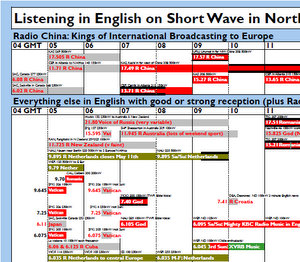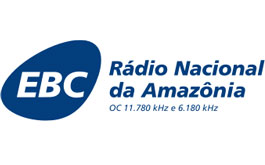
(Source: VOA News)
WASHINGTON, D.C. — Voice of America will soon be able to make its programs available to the U.S. public following passage of new legislation signed by President Obama Wednesday.
The legislation, which is part of the National Defense Authorization Act, eliminates the longstanding ban on domestic distribution of VOA programs that was part of the original U.S. Information and Educational Exchange Act of 1948 (known as Smith-Mundt).
In the coming months, Voice of America and other U.S. international broadcasters will draft regulations governing how they will fulfill domestic requests for release of original programs and materials.
The legislation will not change the focus of the agency’s broadcasts, which are aimed exclusively at international audiences. The new rules will only affect programs broadcast after July 1st, 2013.
The Broadcasting Board of Governors (BBG) has hailed the new law, which updates one of the founding statutes of public diplomacy in the United States, a change that the Board has long supported and had incorporated into its strategic plan. (See BBG Press Release)
Presiding BBG Governor Michael Lynton said the new law will allow the BBG to accept requests to provide its programs to organizations which, until now, it could not share them with, including U.S.-based broadcasters, publications, universities, non-governmental organizations, and others that have requested these materials over the years. Lynton said the new law will allow “greater transparency as more people in this country come to know what U.S. International broadcasting is about.”
“The new law is a major breakthrough for U.S. international media,” said Susan McCue, a member of the BBG Board’s Communications and Outreach Committee. “All Americans will now have access to the vital and informative reporting of our accomplished journalists around the world who are working under difficult circumstances in closed societies and developing countries.”
For more information about this release contact Kyle King at the VOA Public Relations office in Washington at (202) 203-4959, or writekking@voanews.com. For more information about VOA visit the Public Relations website at www.insidevoa.com, or the main news site atwww.voanews.com.
We’ve mentioned the Smith-Mundt Act before. Kim Elliott also has more articles and comments on this recent legislation.

 This past weekend, I recorded several stations on the 25 meter band, including (recently posted)
This past weekend, I recorded several stations on the 25 meter band, including (recently posted) 
 The Mighty KBC will be doing special broadcasts to test modulation on 6,150 kHz. They will broadcast old shows of The Giant Jukebox. Here is the schedule with dates/times in UTC:
The Mighty KBC will be doing special broadcasts to test modulation on 6,150 kHz. They will broadcast old shows of The Giant Jukebox. Here is the schedule with dates/times in UTC: On of my favorite shortwave stations for music, besides
On of my favorite shortwave stations for music, besides 
 This past weekend, Radio Nacional da Amazonia had a booming signal into North America on 11,780 kHz. I recorded their broadcast throughout the night, assuming it would eventually fade; however, it did not.
This past weekend, Radio Nacional da Amazonia had a booming signal into North America on 11,780 kHz. I recorded their broadcast throughout the night, assuming it would eventually fade; however, it did not.